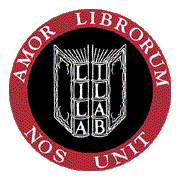Categorieën
De iure belli ac pacis libri III in quibus ius naturae et gentium item iuris publici praecipua explicantur [1993].
Grotius, Hugo (Hugo de Groot)..
ISBN
9783511092306
Uitgever
Curavit B.J.A. de Kanter-van Hettina Tromp. Editionis anni 1939 quae Lugduni Bat. emissa est exemplar photomechanice iteratum. Annotationes novas addiderunt R. Feenstra et C.E. Perenaire adiuvante E. Arps-de Wilde. Aalen : Scientia Verlag,1993. Re...
Taal
Maak uw keuze
Categorie
-
Meer info
Conditie: nieuw. RECHT
Extra informatie
- The first edition of De iure belli ac pacis ('On the Law of War and Peace') was published by Hugo Grotius in 1625, in Paris, where he lived as an exile. Although it earned for him the designation 'father of international law', it is not to be considered as a textbook on international law in the modern sense. His theme was rather, as judge Dumbauld states, the law common to all mankind, the law of the universal human society which prevails on earth. The law of mankind which Grotius expounded was considered as binding not only upon sovereign states as such in their mutual dealings, but also upon persons not yet organized as a unit of political society, as well as upon individuals belonging to different nations or situated in uninhabited or uncivilized areas, and even upon pirates and outlaws. Grotius describes private, penal and constitutional as well as international law. His book contains many opinions on private natural law which have become rules of European private law: a look at some of the codifications of the end of the 18th and the beginning of the 19th centuries will reveal some - mostly indirect - influences. This edition is mainly based on the text of the edition of 1631. Variants from the edition princeps of 1625, the Blaeu-edition of 1632, and the editions of 1642 & 1646 are marked in the text or in the notes. The present edition is a reprint of the 1939 edition prepared by Mrs. B.J.A. de Kanter under the auspices of the Union Académique Internationale, known as the 'editio maior'. More than 150 pages of 'Annotationes novae' have been added. These additional notes are mainly meant to give supplementary information as to the sources to which Grotius refers. In the 1939 edition it was by no means intended to produce a critical edition (which does not exist as yet and it will still take many decades before such an edition can be accomplished) but a basically unemended reproduction of the five editions prepared by Grotius himself. The critical apparatus of the 1939 edition was copied from the 1919 edition by P.C. Molhuysen, who in his turn allowed himself to be led by other editions - in particular those published by Jean Barbeyrac in the 18th century - as far as the specifications of the references and their linkage to the text are concerned. What is lacking in both Molhuysen's and Barbeyrac's editions is the verification of citations from jurists and theologians from the Middle Ages, the 16th century and the beginning of the 17th century (the same applies to the American translation, published in 'The Classics of international Law' in 1925, which was reprinted in 1964 and 1984). This verification has been done in the additional notes of the 1993 edition. It has disclosed a great many errors committed by Grotius himself or by the printers of the early editions: they concern not only the indications of the part of the work cited (numbers of book, chapter, section etc.) but even the names of the authors referred to (at least ten such errors are mentioned in the additional notes; most of them had not been noticed by previous editors). The additions of the new edition include a 'List of Sources' which has a twofold function: it serves to give further specifications of the editions used in checking the references and it serves as an 'Index of Authors Cited' by indicating the pages in the 1939 edition on which references to the relevant source occur (adding references to other works of Grotius in which the same source is cited). Such an index was lacking in the 1939 edition; one had to manage with the Index in the American translation, which is marred by a number of errors. Although the authors of the 'Annotationes novae' are aware that their choice of materials is more or less based on occasion, they feel justified in the emphasis they place on Grotius' legal and moral-theological sources, an aspect which has been neglected far too much in previous editions of the work. The edition was prepared in the Grotius institute of the Royal Netherlands Academy of Arts and Sciences. The main editor, R. Feenstra, is a well-known emeritus professor of Roman law at Leyden University and president of the Grotius Commission of the Academy, who has published a great number of important studies on Grotius' legal works and their sources. (Ter Meulen & Diermanse 617). OCLC: 31300580.
€ 250,00
Verzendkosten: € 5,50
1 stuk op voorraad.Heeft u vragen over het boek? Hier kunt u een vraag stellen.
Mailorder only - Alleen verzending mogelijk.

